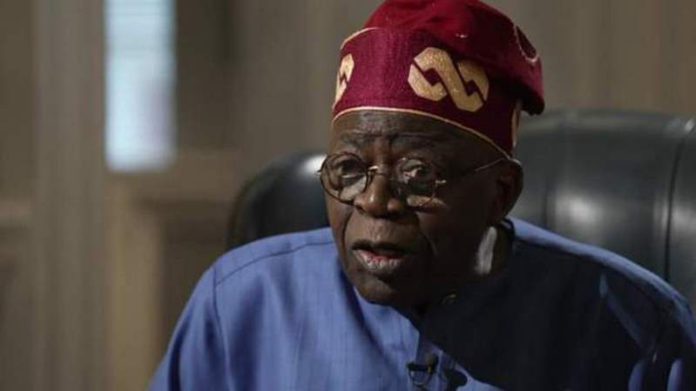Nigeria’s President Bola Tinubu has warned members of the presidential election’s tribunal that removing him as president could lead to a breakdown of law and order in Nigeria.
Mr Tinubu admitted his failure to score 25 per cent of votes cast in Nigeria’s capital Abuja, but said it was insufficient to overturn his victory as declared by the Independent National Electoral Commission, INEC.
“Any other interpretation different from this will lead to absurdity, chaos, anarchy and alteration of the very intention of the legislature,” Mr Tinubu’s lawyers led by Wole Olanipekun said in their final defence statement to the court.
The lawyers were specifically addressing a section of the Nigerian Constitution that said a presidential candidate must score 25 per cent of votes in two-thirds of Nigeria’s 36 states and the Federal Capital Territory, or Abuja.
Public commentary has been rife about the intention of the clause after Mr Tinubu won the highest number of votes in a three-way presidential race in February but failed to score 25 per cent in the FCT.
Mr Tinubu’s team said courts have always been careful about giving extreme interpretation of the Constitution that could spark chaos.
“Our courts have always adopted the purposeful approach to the interpretation of our Constitution, as exemplified in a host of decisions,” the team said.
They also said Mr Tinubu would still have won the election even if he didn’t score anything in Abuja and one other state, although this was not the argument of petitions, Atiku Abubakar of the People’s Democratic Party and Peter Obi of Labour Party.
“Even if there was no election in one State (including the FCT), or even if the election of a State/States (including the FCT) is/are voided, the entire election cannot be voided or canceled.
“In concluding our arguments on this issue, we urge the court to hold that any election where the electorate exercise their plebiscite, there is neither a ‘royal’ ballot nor ‘royal’ voter; and that residents of the FCT do not have any special voting right over residents of any other State of the federation, in a manner similar to the concepts of preferential shareholding in Company Law.
“We urge this court to resolve this issue against the petitioners and in favour of the respondent,” the lawyers said.
INEC had on March 1 declared Mr Tinubu winner of the presidential election held on February 25. The electoral office said Mr Tinubu scored 8,794,726 votes to defeat Messrs Abubakar and Obi, who polled 6,984,520 and 6,101,533 votes, respectively.
In their respective petitions, Mr Abubakar alleged widespread irregularities and cheating in the election, while Mr Obi alleged similar grounds but went further to challenge Mr Tinubu’s eligibility for the election on the grounds that he had previously forfeited money to the United States after being slammed with allegations of drug-trafficking and money laundering.
Mr Tinubu’s lawyers denied the allegations in court, saying whatever payment Mr Tinubu made to U.S. authorities was not in the form of a ‘fine’ as stated in the Nigerian Constitution. In any case, the case did not happen in Nigeria, they further argued.
Messrs Abubakar and Obi are expected to file their responses individually to the arguments mounted by Mr Tinubu’s lawyers in the coming weeks, after which the tribunal — a panel of justices of the Abuja Division of the Court of Appeal — would finalise arguments and deliver a judgement.
Notwithstanding the final judgment of the tribunal, the matter is widely expected to terminate at the Supreme Court, which would then have 60 days to deliver its ruling.
MORE:

